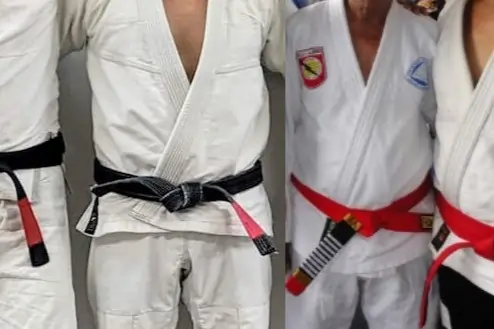BJJ Black Belt: How long does it take & How many are there?
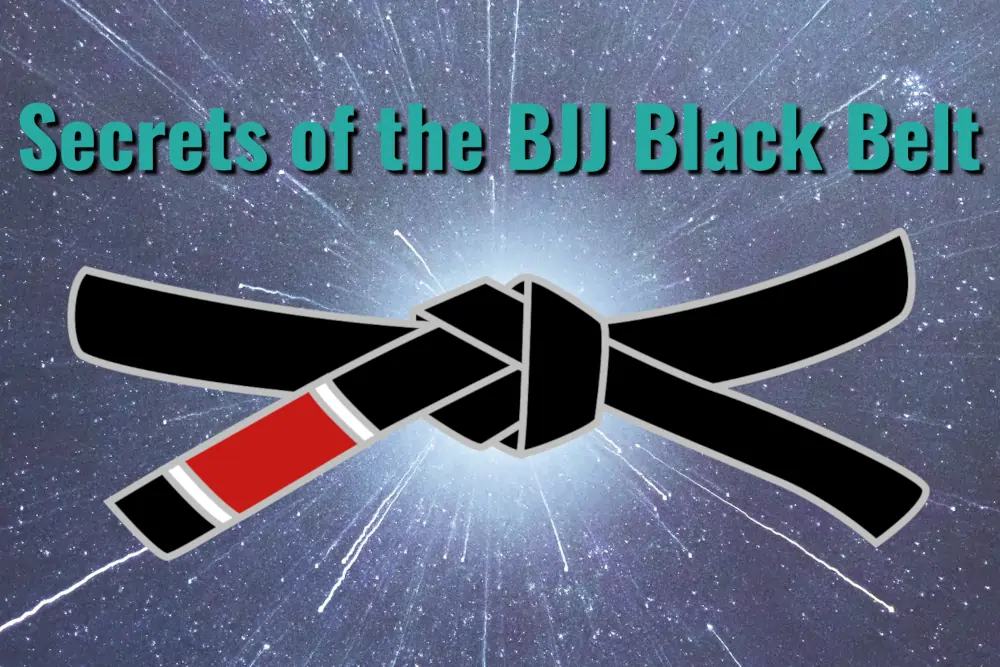
Have you ever wondered how long it takes to get a Black Belt in Brazilian Jiu Jitsu (BJJ)?
How many people make it to Black Belt?
How to get it faster?
On average it takes about 11 years to get a Black Belt in Brazilian Jiu-Jitsu according to a study we did through reddit. This timespan varies from person to person as there are many contributing factors to belt promotion time, and everyone has their own journey.
There are even a few celebrities that made it to the Black Belt in BJJ. Check out their history in the sport:
BJJ Black Belt FAQ
Everything you need to know about the BJJ Black Belt:
Fastest earned Black Belts in Jiu Jitsu
Some famous examples that quickly earned a BJJ Black Belt are:
Travis Stevens
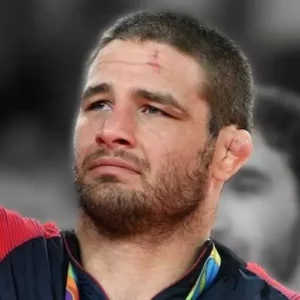
Travis Stevens earned his BJJ Black Belt under John Danaher in only 18 months. Prior to starting his BJJ training he was already an accomplished Judoka and won a silver medal at the 2016 Summer Olympics among other championship wins.
Caio Terra

Caio Terra achieved his BJJ Black Belt under Reyson Gracie and Paulo Strauch in just 3 years.
BJ Penn

BJ Penn earned his Black Belt in Brazilian Jiu Jitsu under Andre Pederneiras in 3 years. He went onto become a Jiu Jitsu world champion and UFC world champion.
Mads Burnell

Mads Burnell is a BJJ Black Belt under Chris Haueter and achieved the belt in just 3 years. He is an accomplished MMA fighter that fought in several big promotions like Bellator and the UFC.
Geo Martinez

Geo Martinez is another BJJ prodigy and received his 10th Planet BJJ Black Belt under Eddie Bravo in only 3 years.
Reasons for Slow and Fast Belt Promotion in Jiu Jitsu
Reasons for fast Belt Promotion in BJJ:
Reasons for slow Belt Promotion in BJJ:
How long does it take to get a Black Belt in BJJ? – The Numbers
We worked our way through several reddit threads on How long it takes to get a Black Belt in Jiu Jitsu. Then we collected the data as well as factors that lead to a faster or slower promotion and plotted the data for you.
The first plot below shows the timespan it took each responder to earn a Black Belt and we can conclude that most practitioners received their Black Belts after around 10 years of training. However, there are some outliers that either took much longer or achieved their BJJ Black Belt faster.
BJJ practitioners receive their Black Belt after an average time of 11.13 years.
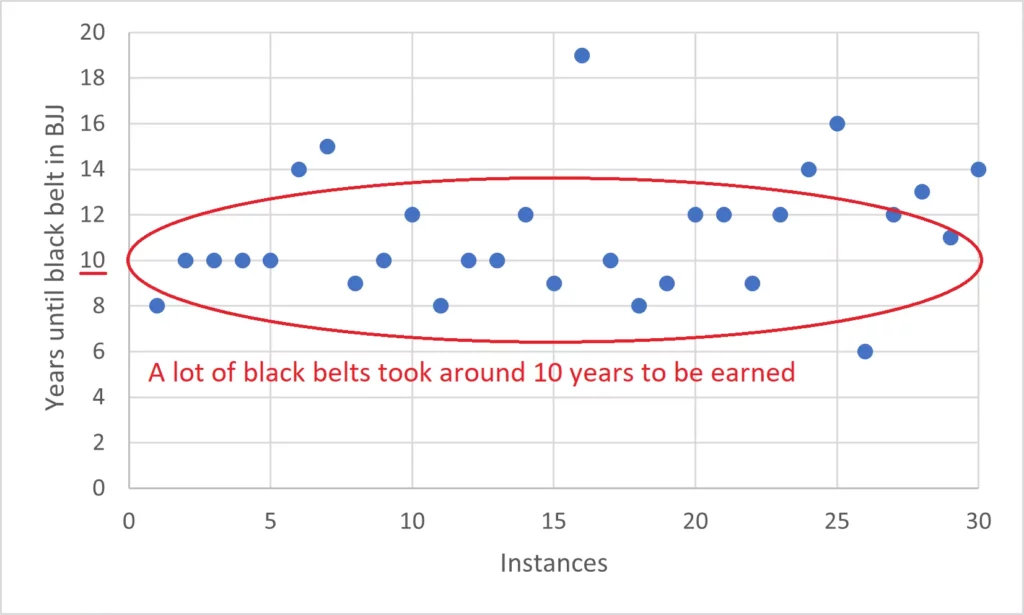
A histogram does a better job at visualizing the data and we can again see that most people received their BJJ Black Belts after about 10 years.
For example, 8 of the 30 BJJ practitioners reviewed on reddit received their Black Belt after 10 years of training. Most practitioners received their Black Belt in a similar timeframe, since the data follows a normal distribution around the mean of 11.13 years.
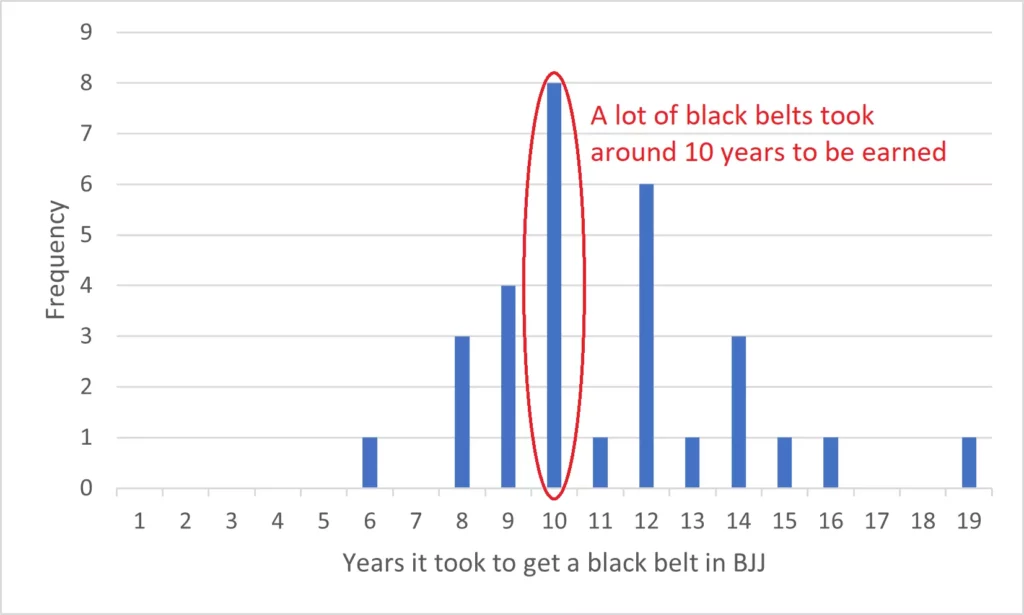
Some of the data points might be duplicates in case one person gave an answer in several different threads. If you want to dive into more data and statistics on belts in BJJ or register your own belt online, we recommend visiting Beltchecker.
BJJ Belt Promotion times according to the IBJJF
The BJJ Black Belt is the last belt in Jiu Jitsu’s belt order: White, Blue, Purple, Brown and Black. Additionally, there are Coral Belts and Red Belts, which represent the highest ranks in Jiu Jitsu and only a few people around the world have the honor to wear these.
The IBJJF or International Brazilian Jiu-Jitsu Federation specifies official minimum time requirements at each major belt color. Generally, these “rules” are just guidelines and promotions are up to the promoting professor. However, they do matter if a practitioner wants to officially register their belt with the IBJJF.
Below you can see an overview of the IBJJF’s Graduation System. More information can be found at the IBJJF’s official website.
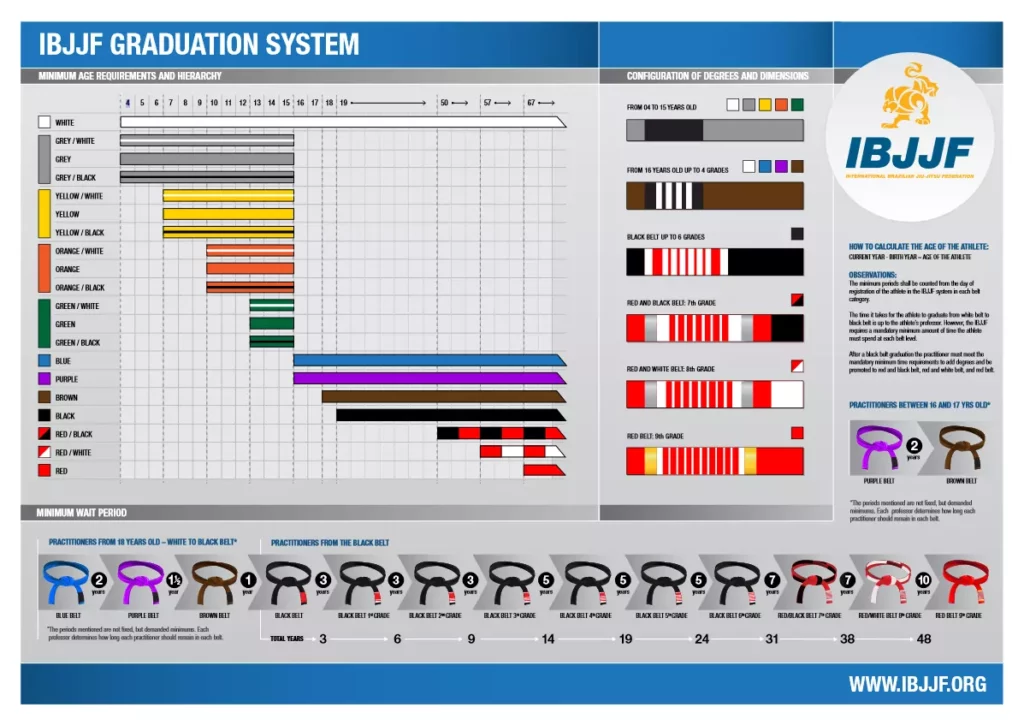
White belt
According to the IBJJF there is no minimal time requirement on how long one must stay a White Belt, although it usually takes 1 to 2 years to be promoted to Blue Belt and requires the practitioner to be at least 16 years old. Check out our data-based article: How long does it take to get a blue belt in BJJ?
Blue belt
After receiving a Blue Belt, the IBJJF requires the practitioner to stay at this rank for at least 2 years before being promoted to Purple Belt.
Purple belt
A Purple Belt must be held for a minimum of 1.5 years before being promoted to Brown Belt which additionally requires the practitioner to be at least 18 years old.
Brown belt
After 1 year of training as a Brown Belt and being at least 19 years old, the practitioner is now allowed to receive a Black Belt in accordance with the IBJJF ruleset.
Black belt
This means according to the IBJJF it requires at least 4.5 years of training and a minimum age of 19 years to receive a BJJ Black Belt. Keep in mind, this calculation doesn’t consider time spent as a White Belt.
Does your BJJ Belt matter?
We have seen the data but what should we take away? As interesting as it is to see the data on promotion times and as fun as it is to get promoted, in the end it doesn’t really matter.
Don’t get distracted by belts and promotions. Just train, improve and have fun, the belts will come at some point. You will see that they are not as important as you might have thought.
Nevertheless, belts and stripes are a nice sign of appreciation of your hard work and dedication by your coach and fellow grapplers.


